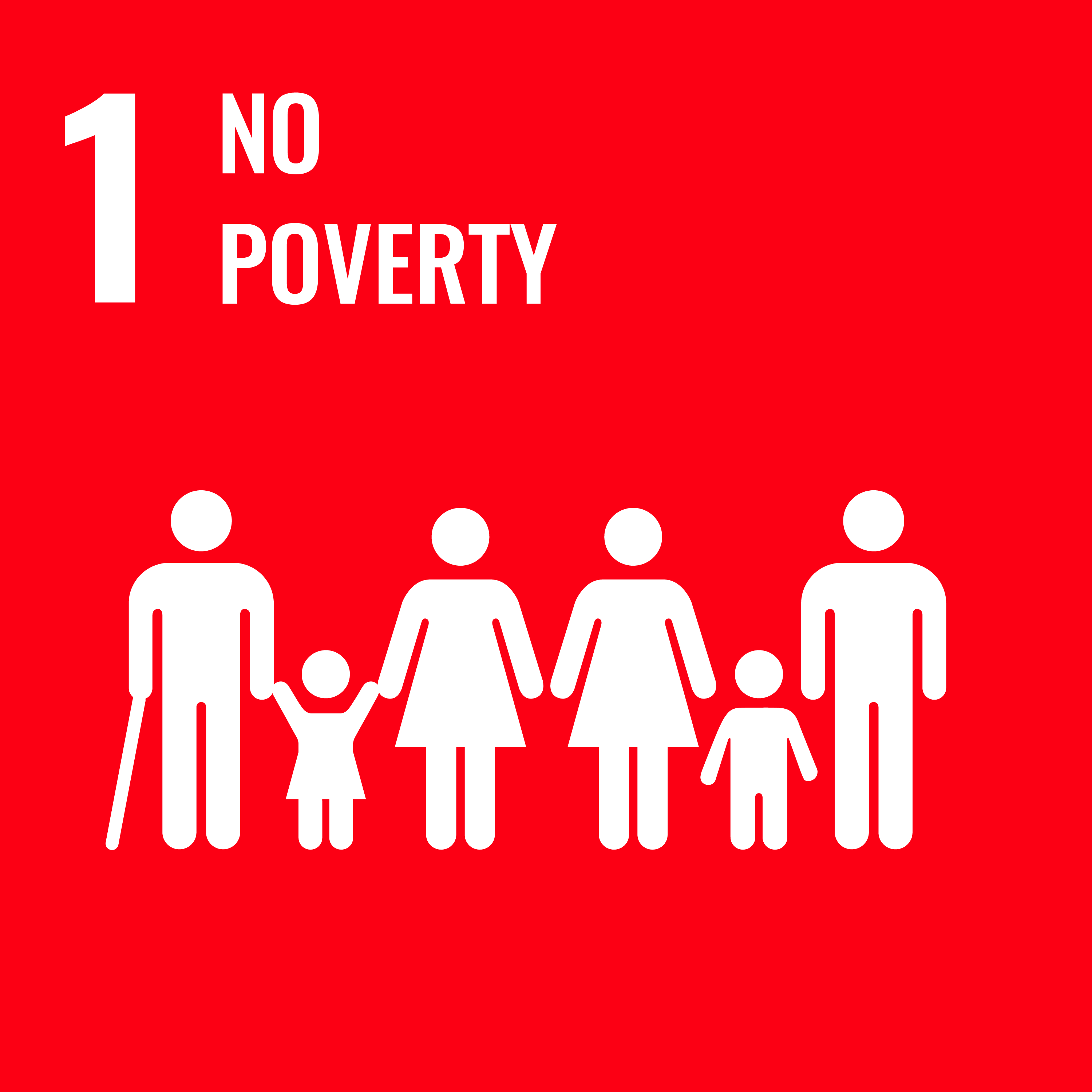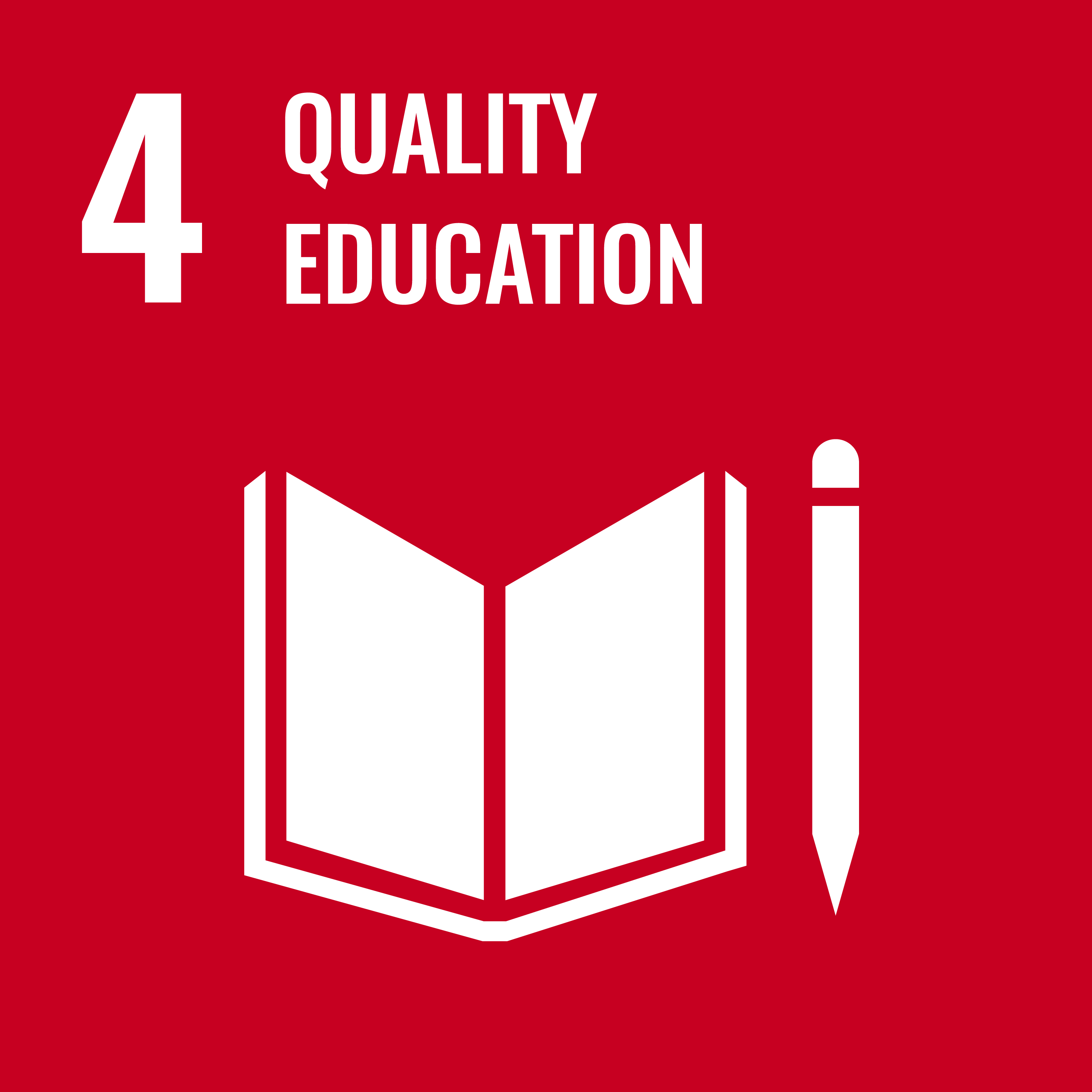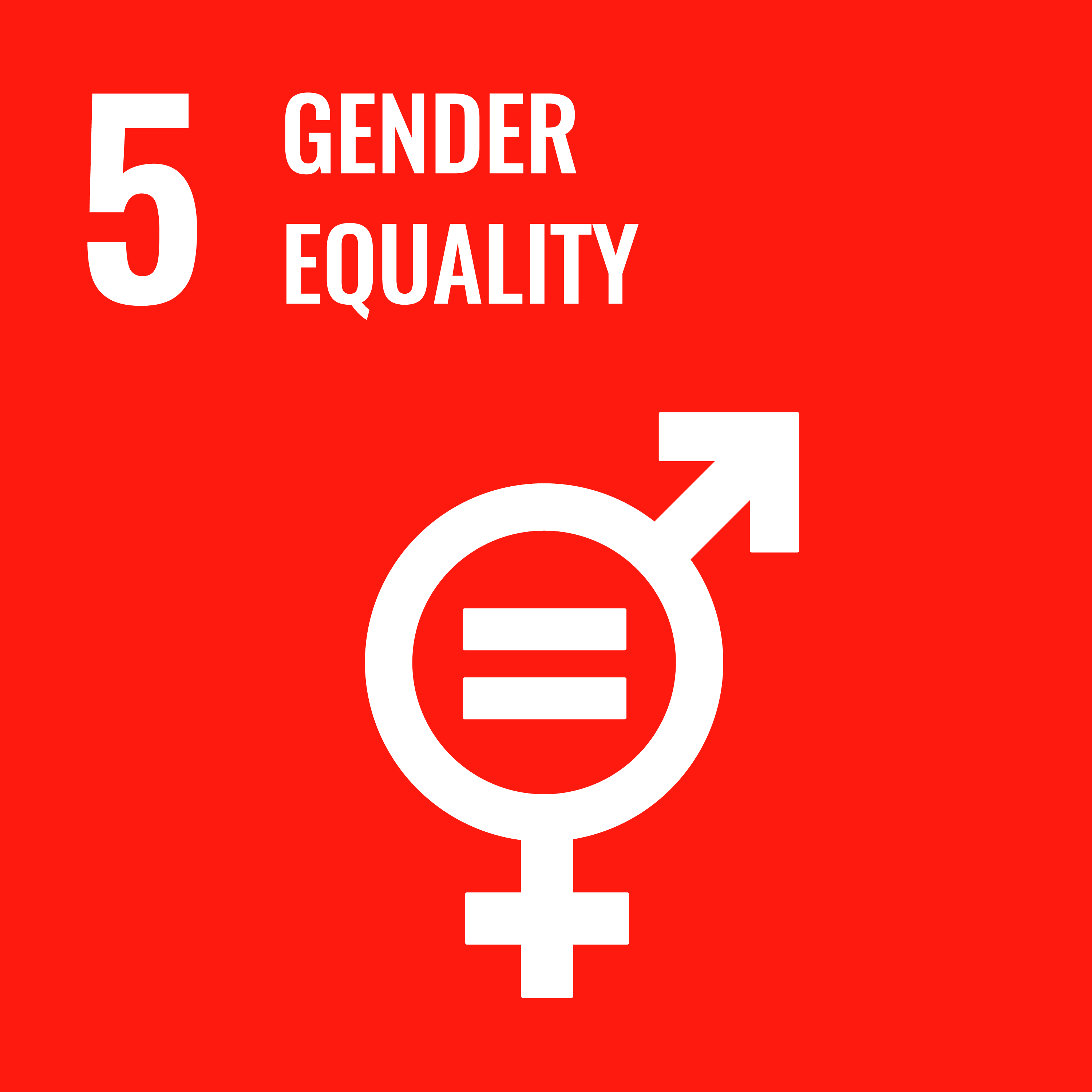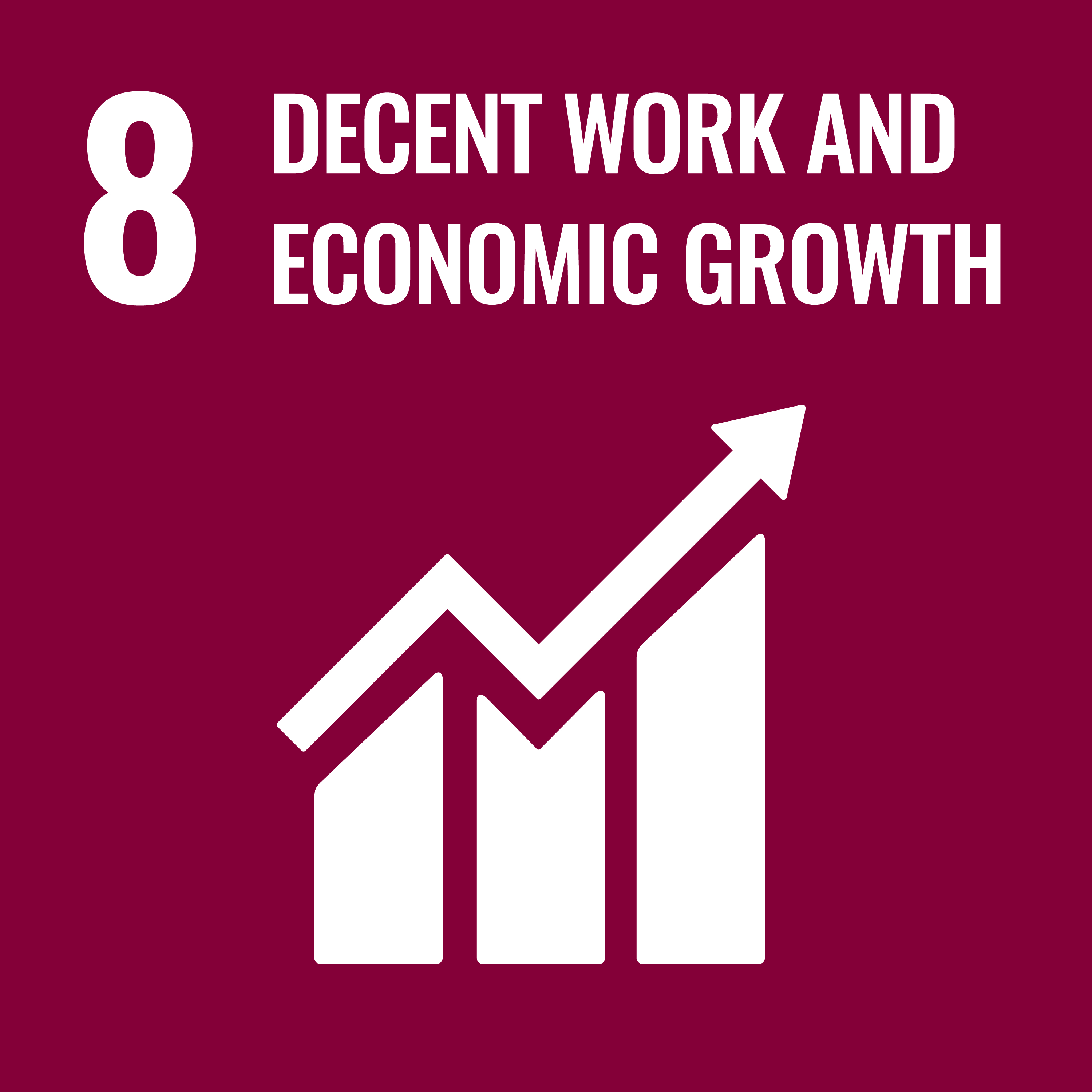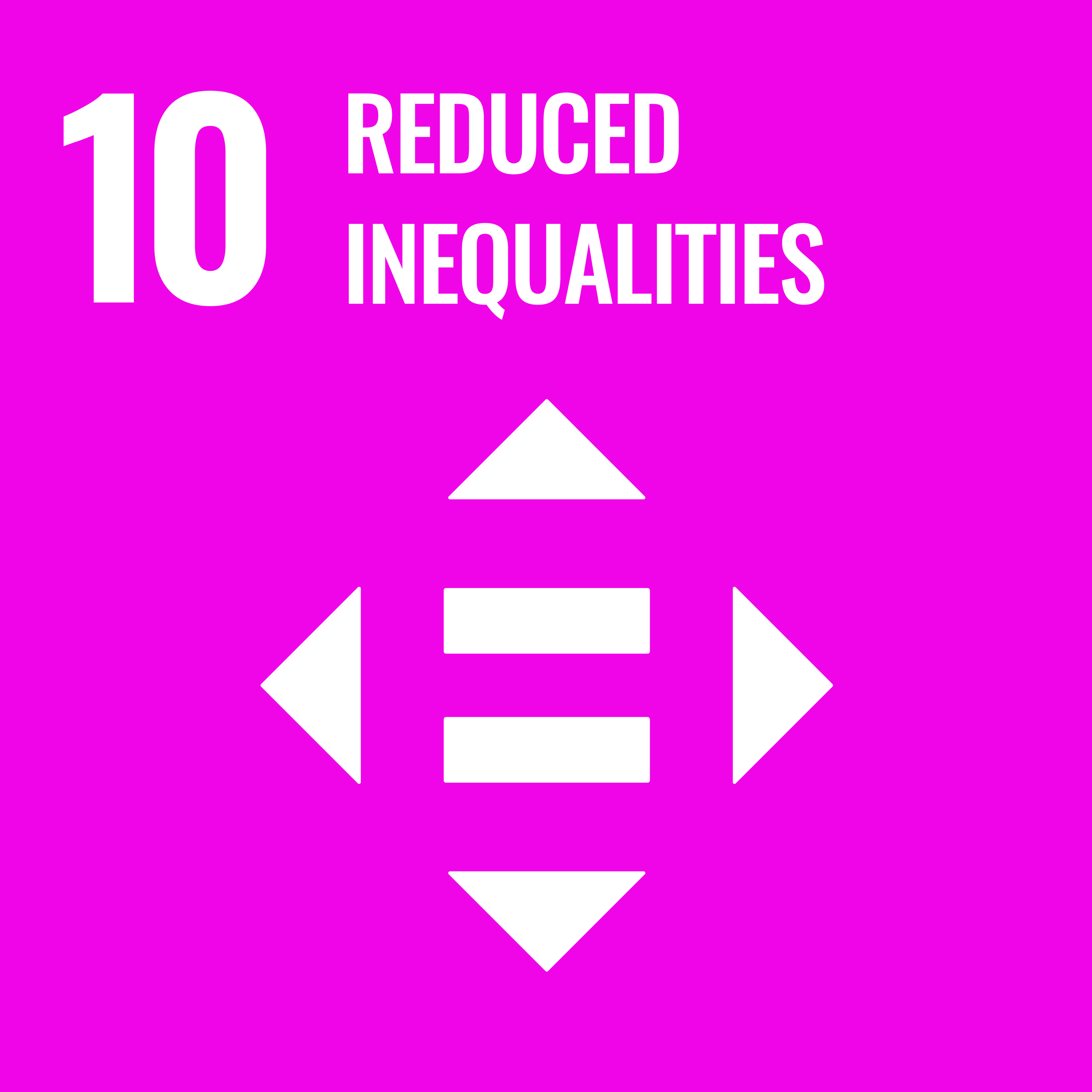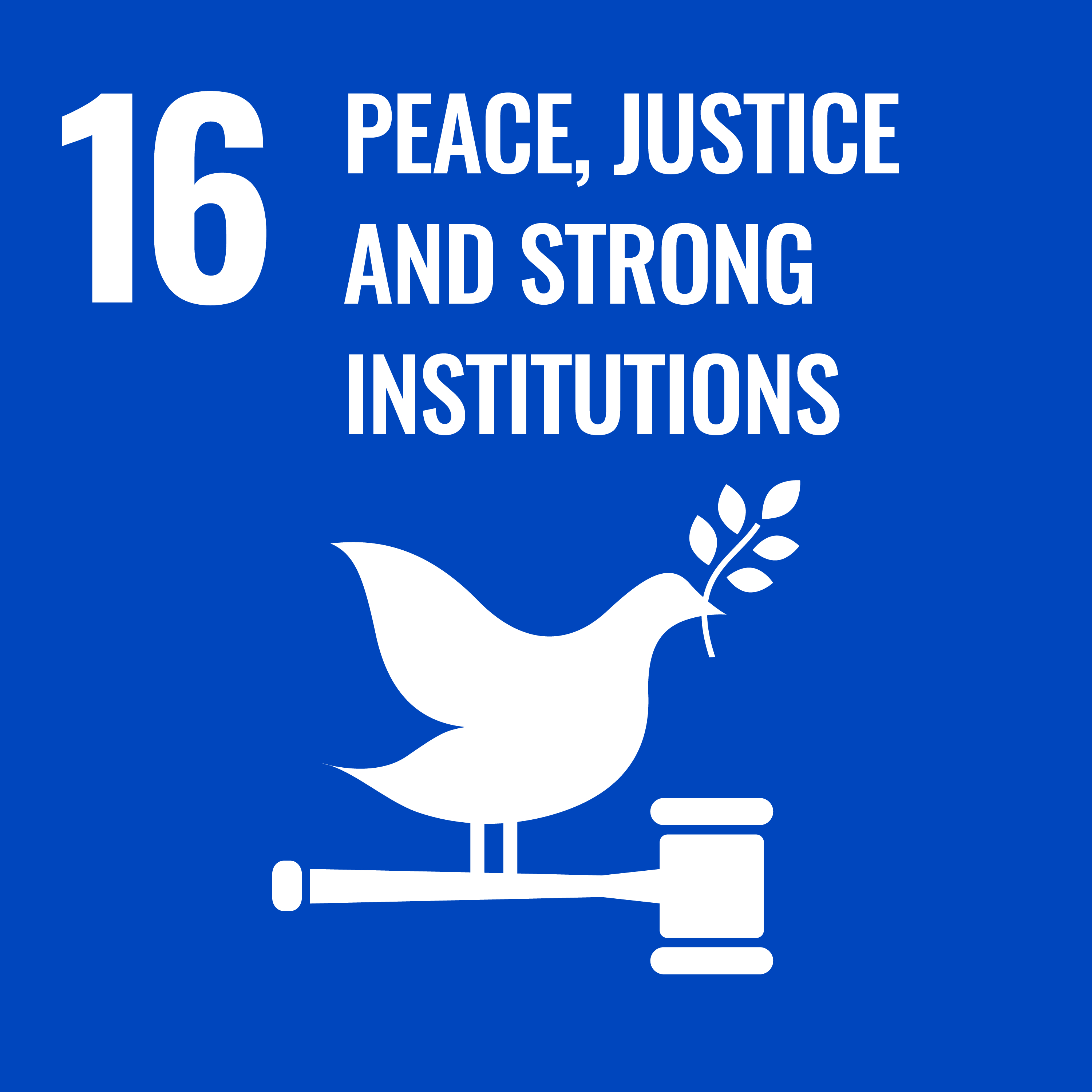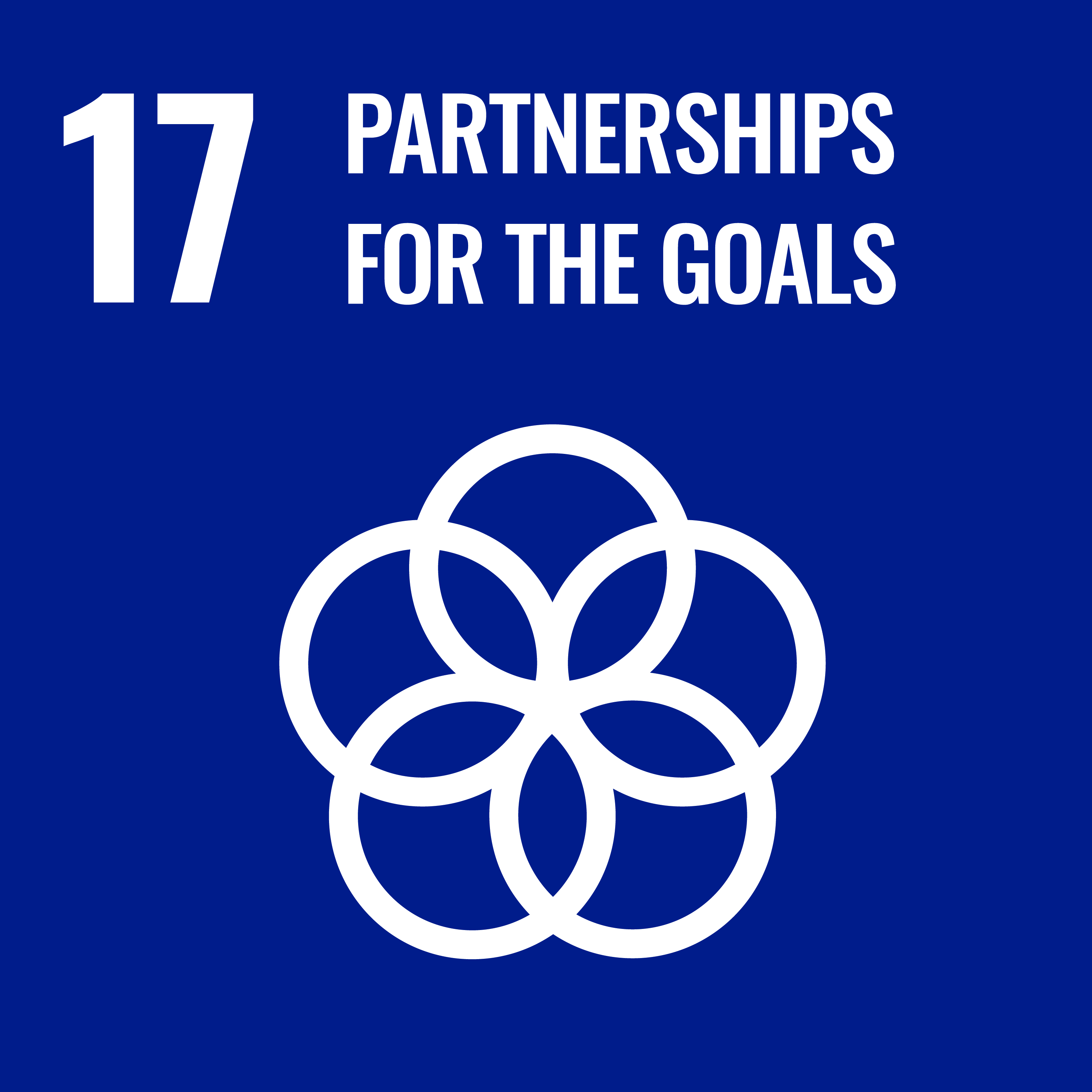Outcome 2: Financing for gender equality
Public and private financing advance gender equality through gender responsive financing policies, strategies and instruments.
In Cameroon, UN Women works with the communities that host refugee camps, training local women in petty trade, food processing, sewing, soap-making, project management and entrepreneurship. Photo: UN Women/Ryan Brown
Contributes to achieving SDGs
GRB implementation leads to greater trust in local self-governments and bigger involvement of citizens in planning and budgeting
In Topola, Serbia, gender-responsive budgeting help deliver essential services for children with disabilities. Photo: UN Women Serbia
The Municipality of Topola is one of the local self-government units (LSGUs) in Serbia that includes gender-responsive budgeting (GRB) in its policies in line with the Budget System Law, as a tool to meet the needs of women and men and improve their social and economic well-being. The initiative was supported by UN Women Serbia, within the framework of the “Transformative Financing for Gender Equality in the Western Balkans” project funded by the Government of Sweden through the International Development Cooperation Agency (Sida). Topola is one of five LSGUs that have been supported throughout 2023, building on the success of the nine municipalities and cities supported in 2022.
Jasna Vukovic, President of the Topola Municipal Assembly, says that GRB is important because it enables municipalities to achieve more effective fulfilment of legal obligations and a higher level of gender equality and women's rights. It supports the alignment of priorities in the fields of gender equality and funding and improves the quality of public services and public investments.
“The implementation of GRB and the realization of the goals and plans set in line with it, reduced the gender gap and made citizens, but also public employees, more satisfied with the engagement of municipal services and services provided by institutions funded by the LSGUs. No less important benefit of gender-responsive budget planning is the saving of resources and time of all those involved in the implementation of the activities foreseen in the budget“, she adds.
Non-profit organization Aid Society "Zagrljaj" from Topola is focused on helping people with developmental disabilities and is largely financed from the local budget. Thanks to the GRB implementation, the municipality allocated funds for the financing of some of their services, including children's personal companion service, organization of individual support through speech therapy, defectology and psychological treatment of children.
Jelena Kundovic from „Zagrljaj“, defectologist–oligophrenologist (special educator and rehabilitator of persons with mental disabilities) says that the organization supports children with developmental disabilities, as well as their families.
“Children with disabilities are a very sensitive population in terms of discrimination, and they need the support of both the public and non-governmental sectors to exercise their rights and maximize their capacities. In bigger communities and cities, a large number of services are available, from diagnostic to therapeutic and educational. In small towns, such as Topola, resources for the inclusion of children with developmental disabilities are minimal. This leads to great segregation and isolation of this population, not only children but also entire families. With GRB, it became possible to increase the engagement of experts and assistants who are competent to help these sensitive groups. This allows these children to be adequately included in the educational system in their local community, without having to travel to a bigger city, as it was the case in previous years. Since attention fatigue is an exceptional problem for these children, travelling for 30 kilometres from their place of residence exhausted them further and nullified the effects of the treatment. The families were struggling financially and allocating a lot of time to provide this kind of support to their child. By solving these difficulties, through GRB, we managed to provide multiple benefits for all actors in the process”, she explains.
Kundovic adds that GRB contributes to the promotion of social and educational inclusion at the local level. It also ensures that all relevant actors at the local level are recognizing and preventing discrimination, while promoting respect and acceptance of diversity, as well as achieving a higher level of tolerance for diversity.
This is not the only support provided to the members of the local community, thanks to GRB. Funds from the municipal budget are also being allocated for the service of supportive home care for adults and children, as well as for personal companions for people with disabilities. Women who are heads of households are given more favourable subsidies, while textbooks for 1st grade students have been provided for free.
Olja Jankovic Lekovic, UN Women GRB Programme Coordinator, says that, besides increasing their capacities to implement GRB, these municipalities and city administrations were enabled to plan and budget for gender-sensitive measures and activities based on the findings of sectoral gender analysis, while their knowledge and skills were improved through additional trainings and mentoring.
“GRB contributes to a better understanding of the needs of specific groups in the community, while its implementation leads to greater trust in local self-governments and bigger involvement of citizens in planning and budgeting. In addition, GRB entails improved collection and usage of gender-sensitive data and statistics, putting women and men at the centre of local policies and budgets“, she concludes.
Tags
Op-Ed: International Women’s Day 2024 Invest in Women: Accelerate Progress for Liberia's Future
By Comfort Lamptey, UN Women Liberia, Country Representative.
Monrovia, 7 March, 2024
In Liberia, as in many parts of the world, women face challenges related to poverty and continue to face numerous barriers to full economic and political participation and empowerment. Over half of Liberia’s population (51 percent) live below the national poverty line, according to a World Bank report.. In 2021, Liberia ranked 164 out of 191 on the Gender Inequality Index.
Limited access to education, healthcare, economic opportunities including a lack of access to credit and banking services, limited social protections, and insecure access to land, along with persistent gender stereotypes and discriminatory cultural practices, continue to block women from reaching their full potential.
Although most Liberian women engage in wage labor or work informally, they remain responsible for the bulk of care work – which remains undervalued and unrecognized, despite the essential nature of this work – and its immeasurable contribution to the formal economy.
By closing existing gaps in care work and expanding decent work opportunities, and prioritizing gender-responsive financing, the full potential of women and girls can be unlocked to drive sustainable development and prosperity for all.
Recognizing the need to accelerate the slow progress on gender equality as well as the growing evidence base that demonstrates the transformative impact of gender responsive financing, the global theme of this year’s International Women’s Day is, ‘Invest in Women: Accelerate Progress,’ and the national theme is ‘Empower Her, Empower All'.
Gender responsive budgeting and planning has been upheld globally and in Africa as a tool to target development interventions to meet the diverse needs of women and men, boys and girls. The Government of Liberia has made important investments in recent years to promote gender equality through initiatives such as the Gender Responsive Planning and Budgeting Unit at the Ministry of Finance and Development Planning to ensure inclusive development planning and implementation, providing comprehensive gender analysis to address gaps across all sectors. Several ministries have also established gender and social inclusion units, which need to be capacitated to be effective in addressing inequalities in the delivery of public goods and services. Similarly, the Ministry of Gender, Children and Social Protection needs to be adequately funded to effectively deliver on its gender coordination and monitoring mandate.
Investing in women is essential for crafting transformative solutions that empower women to claim their rights, break free from the cycle of poverty, and flourish. When women are economically empowered, entire communities thrive, and economies grow.
Liberia has an abundance of women’s rights organisations that do incredible work in the areas of women’s economic empowerment, gender-based violence prevention and response, women’s political participation and leadership, sexual and reproductive health and rights, amongst others. Despite the significant contributions to Liberia’s development, they are not adequately funded.
The theme for this year’s International Women’s Day is a Call to Action for all stakeholders to invest in these women’s rights organisations that are at the forefront of providing crucial services, fighting discrimination and violence, contributing to economic growth and prosperity in Liberia.
UN Women remains committed to collaborating with partners to support Liberia on this path, by providing technical resources to ensure that policies, plans, programs, and budgets are gender-responsive. This includes working closely with the Ministry of Finance and Development Planning, the Ministry of Gender, Children, and Social Protection and the national Legislature to mainstream gender priorities at both national and subnational levels.
Actualising the theme for this year’s International Women’s Day in Liberia will require a prioritization of gender-responsive financing and increased public spending on essential services and social protection, as well as investments in women and women led organisations to accelerate progress.
This International Women’s Day, let us recognize the invaluable contributions of women to Liberia's past, present, and future, and commit to removing the barriers that hold them back. Together, we can build a Liberia where every woman and girl has the opportunity to fulfill her potential and contribute to the nation's development. Investing in women isn't just about empowering individuals; it's about building a more just, prosperous, and sustainable future for Liberia and the world. Happy International Women’s Day 2024.
Tags
A woman receives cash assistance in Injil District, Herat Province. Photo: UN Women/Sayed Habib Bidell
Ornate multicoloured mosques stand in sharp contrast against the barren, snow-capped mountains in Afghanistan’s northern Balkh Province. While summers here are sweltering, winters can be brutal, with freezing temperatures at night. Here, where many households cannot afford heating due to rampant poverty, winter is a time to be dreaded.
Women-led households are particularly vulnerable, as the Taliban have restricted sectors wherewomen have access to paid work, and women and girls disproportionately suffer from malnutrition and anaemia, making it harder to withstand cold temperatures.
“My daughter always has a headache. I took her to the clinic several times, and they say she has low blood and is not properly nourished,” says Noorya,* a widow with six children. “We lacked sufficient food and clothing. My children wore old clothes we got from people, and those clothes are now torn. … In a good month, I don’t earn more than 7,000 afghanis, which is enough for food, nothing else.”
She is among the nearly 12,000 beneficiaries and 1,338 households (1,225 of which are women-headed households) that UN Women has supported with cash assistance in 62 districts in seven provinces so they could buy clothing, fuel and other supplies to help them withstand the frigid winter. This assistance is funded with support from the Governments of Austria, Norway and Sweden.
For Noorya, it meant her children could finally get some new clothing and would no longer have to go scrounging for animal dung to heat the basement of the house where they’re currently living.
Shazia,* a 26-year-old university graduate and widow with four children from Balkh Province, was facing similar challenges.
“After my husband’s death, we are living with my father, whose economic situation is not good enough to afford education for my children,” says Shazia. “Last winter was challenging as I had no fuel for heating or warm clothes for my children. However, this year, thanks to the assistance from UN Women, I am grateful to be able to purchase winter fuel, warm clothes for my children, and some food items.”
Besides widows, the women receiving assistance included those most marginalized and vulnerable, a quarter of whom are women with disabilities, a quarter of whom are internally displaced and another quarter of whom are Afghan migrants recently evicted from Pakistan.
Atefa*, 22, was one of them. “My husband used to work in a brick kiln in Pakistan, and despite being immigrants, we had a decent life. … Five months ago, my husband was falsely accused of theft and imprisoned. I exhausted all our resources to prove his innocence, but we didn’t succeed. … A month ago, the Pakistani Government warned all Afghan immigrants to leave the country. We were among those expelled.”
Two weeks after being deported to Afghanistan, her husband was still in prison in Pakistan. Atefa came to Balkh Province with her three children, with nothing but the clothing on their backs, eventually finding a house she could only afford to rent by begging.
“Everything I had in Pakistan was spent on the struggle for my husband’s freedom. When we were expelled, I had nothing from home to bring with me, and now, after two weeks, I don’t have any household items or clothing. We don’t have food for ourselves or warm clothes for my children,” says Atefa.
She expressed her gratitude for the financial assistance provided by UN Women to procure winter fuel and food for the displaced, which she says allowed her to buy coal, warm clothes for her children and essential food items, like flour, rice and oil for the winter.
In neighbouring Jawzjan Province, Shahnaz* was living with her son, who has a disability and needs treatment. "Our house was too cold in the winter, and we could not afford to provide heating. With UN Women support, I provided food and heating for my family and bought the medicine my son needed, and his situation is improving.”
Meanwhile, Sumaia*, whose husband is unemployed, says they would not have been able to buy winter clothing for their family had it not been for UN Women's cash support, which also enabled her to buy some food. Cash assistance gives women more financial autonomy and flexibility to buy what they need to keep their families warm.
“Women are often the primary caregivers in their families and cash assistance allows them to meet the immediate needs of their children and dependents. Cash assistance also empowers women to make their own financial decisions and manage their own resources, which can build their confidence and independence,” says Alison Davidian, Special Representative for UN Women Afghanistan.
Crisis-affected women are also benefiting from UN Women and partners’ resilience programming, which builds women’s economic empowerment, vocational and business skills, while supporting survivors of gender-based violence.
* Names changed to protect the women’s identity.
Tags
New EU-UN ‘PROTECT’ project supports women migrant workers and children in Southeast Asia
Photo: ILO Asia Pacific
Bangkok, Thailand — The European Union (EU) announces a financial support of EUR 13 million to the United Nations (UN) for a new initiative called ‘PROTECT’, which aims to strengthen the rights of women migrant workers, children, and at-risk groups in Cambodia, Indonesia, Malaysia, and Thailand.
The three-year PROTECT project will promote decent work and reduce vulnerabilities of those at risk by ensuring labour rights, preventing, and responding to violence against women and children, human trafficking and migrant smuggling.
H.E. Mr David Daly, Ambassador of the European Union to Thailand said “People worldwide are forced to leave their homes in search of opportunities and better lives. Along their journey in transit and at their destination, women migrant workers and children are at a higher risk. We are proud to continue supporting our UN partners in this new project aimed at addressing a global phenomenon at the regional level. Together with Thailand and other partner countries in the region, we will provide protection for women and children, strengthen migration governance, tackle human trafficking and migrant smuggling, as well as develop legal pathways for sustainable migration policy.”.
There are 10.6 million migrants in the Association of Southeast Asian Nations (ASEAN) region, of whom nearly half are women and 1.3 million are children. Migrants, especially those in low wage occupations, face many challenges including labour exploitation, human trafficking, violence and harassment. Women migrant workers are also more likely to end up in informal sectors where they are offered temporary jobs and little to no social protection. Children accompanying migrant workers face a high risk of abuse, exploitation and trafficking as well as inadequate access to child protection services.
‘PROTECT’ project will be implemented by four UN agencies namely the International Labour Organization (ILO), United Nations Entity for Gender Equality and the Empowerment of Women (UN Women), United Nations Office on Drugs and Crime (UNODC), and United Nations Children's Fund (UNICEF).
The agencies will work with relevant stakeholders in four Southeast Asian countries to strengthen laws and policies, improve capacities and mechanisms to better protect target groups’ rights and increase access to information and services
Noting the significance of the new project to the region, Chihoko Asada-Miyakawa, ILO Assistant Director General and Regional Director for Asia and the Pacific said, “Labour migration is a driver of economic and social development in countries of origin and destination, benefiting migrant workers, communities and employers alike. Migration governance policies and approaches need to be gender responsive , more inclusive and in line with international labour standards if we are to provide the protection and access to decent work that migrants deserve, which is critical for social justice.”
"Addressing the pervasive issue of violence and harassment against women migrant workers in Southeast Asia is imperative. Through this joint project, we will continue to champion their rights, safety, and dignity, working towards a future where all women migrants can live and work free from fear and exploitation,” said Alia El-Yassir, UN Women Regional Director for Asia and the Pacific.
“Children on the move are incredibly vulnerable, especially in the context of labour migration,” said Debora Comini, UNICEF Regional Director for East Asia and the Pacific. “They risk exploitation, abuse and violence; they are deprived of access to education, health, and social protection. Migration policies and practices must be child-sensitive and uphold the rights and best interest of every child, regardless of their migration status.”
“To break the cycle of exploitation and abuse, the protection of victims of trafficking and smuggled migrants before and during the criminal justice process is critical,” said Masood Karimipour, UNODC’s Regional Representative for Southeast Asia and the Pacific. “Under this new project, UNODC will build on its work with law enforcement and justice counterparts in the region, ensuring that victims’ rights continue to be upheld and criminals held to account.”
The PROTECT project, which runs until December 2026, builds on the results and lessons learnt from two earlier EU-funded projects: ‘Safe and Fair: Realizing women migrant workers’ rights and opportunities in the ASEAN region’, which was implemented by ILO and UN Women, in collaboration with UNODC from 2018 to 2023 and ‘Protecting Children Affected by Migration in Southeast, South and Central Asia’ implemented by UNICEF from 2018 to 2022.
In the wake of multifaceted crises, the world faces unprecedented challenges in achieving the Sustainable Development Goals (SDGs) by 2030. The gap in financing for developing countries has expanded notably by 56%, with a projected deficit of almost $4 trillion, emphasizing the need to seek out inventive and lasting financing methods. While it is estimated that an additional $360 billion per year is needed to achieve gender equality and women’s and girls’ empowerment in developing countries, funding has fallen short of these needs. However, gender bonds present a hopeful solution for directly funding initiatives aimed at fostering women's economic empowerment.
In concerted efforts to address the pervasive economic and social disparities, in 2020, UN Women and Financial Sector Deeping Africa (FSD Africa) developed a study on Viability of Gender Bonds in Sub-Saharan Africa. Following this pivotal moment, gender bonds are beginning to emerge in different parts of the region, signaling a significant shift in sustainable finance.
In a landmark effort to address gender gaps and drive sustainable development across the African continent, together with partners, UN Women has unveiled a groundbreaking Gender Bond Toolkit tailored for Africa. This innovative initiative represents a significant step forward in leveraging the power of finance to advance gender equality and women's empowerment in the continent. The toolkit aims to highlight the ongoing challenge of achieving gender equality, noting that if the current trends continue, over 340 million women and girls (8% of the global female population) will still live in extreme poverty by 2030. This collaborative endeavor represents a step toward leveraging the power of finance to drive meaningful change and advance gender equality on a global scale.
What this toolkit means for Africa
The unveiling of this Gender Bond Toolkit signals a new era of innovative finance. This groundbreaking initiative promises to unlock capital for gender-focused projects while fostering greater gender equality across the African continent. The toolkit emphasizes the importance of local ownership and participation in the design and implementation of gender-focused projects. By fostering partnerships between investors, issuers, and local stakeholders, the toolkit seeks to ensure that investments align with the SDG 5 agenda on gender equality and women’s and girls’ empowerment.
By harnessing the power of finance to address economic challenges that women face, the toolkit embodies a collective commitment to building an inclusive world for women and girls in the finance ecosystem.
What gender bonds mean for Africa?
Gender bonds hold great promise for Africa in advancing gender equality and women’s economic empowerment. They have the potential to drive positive social change and create lasting impact for women and girls across Africa.
By promoting investment in gender equality initiatives, this gender bond toolkit contributes to creating long-term sustainable change in Africa by addressing the root causes of gender disparities and empowering women’s economic empowerment.
This toolkit serves as a valuable tool for advancing gender equality and women's empowerment on the continent by mobilizing resources, promoting investment in gender-responsive projects, and fostering collaboration among stakeholders to achieve sustainable development goals.
By issuing gender bonds, African countries and organizations can unlock new sources of funding for social impact projects focused on gender equality. Gender bonds offer a strategic avenue for African countries to contribute to achieving SDG 5 and other related goals, thereby advancing sustainable development and poverty reduction on the continent.
Learn more about gender bonds here.
Tags
In Janakpur, Nepal, in 2019 hundreds gathered to march and chant slogans in an effort to call attention for the need to reclaim women’s rights and access to safe public spaces. Photo: UN Women/Uma Bista
In 2022, countries around the world spent USD 204 billion in overseas development assistance—of that sizable sum, only one-fifth of one per cent was spent on reducing gender-based violence.
That’s according to “What Counts? The state of funding for the prevention of gender-based violence against women and girls”, a new report by the UN Women partners the Equality Institute and the Accelerator for GBV Prevention, working together under the Collective Commitment with the Generation Equality Action Coalition on GBV.
The collective calls for USD 500 million in new funding against gender-based violence for low- and middle-income countries by 2026.
“Understanding who is funding prevention, where this funding is going, and what impact this funding is having helps build a picture that can inform and guide future decision-making and investment”, said Emma Fulu, Founder and Executive Director of the Equality Institute.
She described the report as “an invitation” to funders across the globe to redouble their efforts and continue to help drive investment in preventing gender-based violence.
A separate report, the Action Coalition on GBV’s Accountability Report, noted that only 5 per cent of total overseas development assistance dedicated to addressing violence against women reached civil society organizations in developing countries, thereby highlighting the urgent need for increased long-term, sustainable investments in women’s rights organizations.
Recommendations
The "What Counts?” report calls for shifts in funding distribution, recommending governments directly fund local women’s rights organizations and feminist movements. At present, 98 per cent of funding has been delivered to international nongovernmental organizations, private contractors, governments, and multilateral agencies—and that funding is often short-term and focused on delivering specific projects.
Instead, the report says, funding should be sent to front-line feminist organizations and independent global feminist funds, which can be more flexible in the disbursing of funds and focus on long-term goals.
Another recommendation is for private philanthropic foundations to commit to gender-based violence prevention in their overall strategic plans, and to embed such commitments across their portfolios. Philanthropies are also encouraged to provide annual reports on their investments fighting gender-based violence, and all donors are recommended to increase the transparency of their programmes to ensure that progress can be tracked.
The report also recommends that plans to reduce gender-based violence be built into international development policies, counties’ national action plans, and broader strategies at the country level. Governments are encouraged to enact multi-sectoral national action plans to prevent gender-based violence, with budgets that include commitments for aid and international development.
The Action Coalition on GBV’s Accountability Report also calls for increasing funding to women’s rights organization and for doubling the amount of funds that reach local women's rights organizations. That report also calls for coordinated, comprehensive, and multi-sectoral programming on violence against women and girls.
“It is possible to end this global scourge in our lifetime”, said Kalliopi Mingeroi, Chief of UN Women’s Ending Violence against Women and Girls Section. “We have the answer: sustained political commitment and greater investments in effective prevention strategies through domestic financing, official development assistance, private and philanthropic financing can drive down the prevalence of violence against women and girls in all their diversity”.
“Every effort invested in prevention is a step towards a safer and more equal world”, she said.


